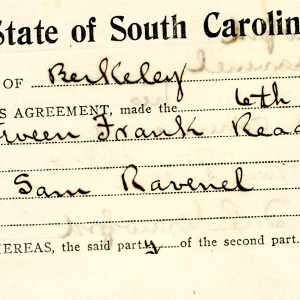About

In the Southern States, particularly in the cotton, rice, and tobacco sections, the use of crop liens for short-time loans appears to be much greater than in other sections of the country. It is a common practice throughout the country for farmers to run up book accounts with local merchants during the spring and summer to be paid in the fall when the crops are sold. When this is done on any considerable scale the farmer probably pays more than bank interest under the guise of prices, and this is particularly true when he obligates himself to sell his crops to the creditor merchant. In the South, this practice is carried to the extreme in the familiar “store-lien” system which holds many farmers in the cotton belt in a condition bordering on perpetual servitude. The custom is for the farmer to buy supplies from the local general store on credit for the year, agreeing to sell to the merchant his cotton crop in the fall, thereby canceling the debt. A crop lien is generally given, and the merchant often dictates the character and the amount of the planting. December 1912 article in the American Economic Review.
Related Terms:
- Berkeley County Library
Institution:
- Documents,
- Manuscripts
Media Types:
- Berkeley County
SC Counties:
- World War I (1914 - 1918),
- Jazz Age (1919 - 1929)
